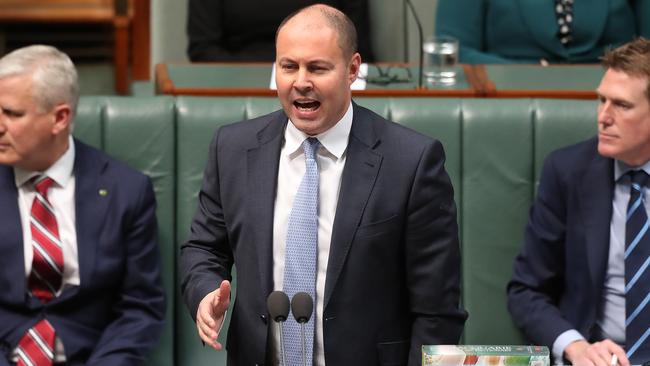Treasurer cops flak for adviser legislation
Josh Frydenberg has been accused of failing to “fully” deal with one Kenneth Hayne’s key recommendations.

Josh Frydenberg has been accused of failing to “fully” deal with one of royal commissioner Kenneth Hayne’s key recommendations that sought to rid the financial advice sector of conflicted remuneration by banning grandfathered trailing commissions.
The Treasurer yesterday flagged he would introduce legislation this week banning grandfathered conflicted remuneration paid to advisers.
Mr Frydenberg said the government would be going “further” than Mr Hayne’s recommendations by setting up a mechanism to rebate clients for any forgone remuneration when the payments are banned at the start of 2021.
Mr Frydenberg said the bill would include a new power to “establish a scheme that will provide that those people paying conflicted remuneration rebate clients for any remuneration that would be paid” after 2021.
The government also released draft regulations for another royal commission recommendation, to force insurance companies to face the same obligations to keep their contracts fair as most other businesses. Of the 76 recommendations, this is set to become the fifth to be legislated.
Although the final regulations for the trailing commission ban have not been made publicly available, some of Australia’s largest superannuation funds argued that the government’s previously released draft legislation needed to be dumped in favour of a “complete ban”.
The government’s draft legislation also provided for a rebated system., but this model was criticised for preserving existing incentives encouraging advisers to keep their clients in poorly performing and expensive products because they would still be rebated their remuneration.
“The government’s reform will benefit retail clients, as they will receive higher-quality advice and stop paying higher fees to fund grandfathered conflicted remuneration,” Mr Frydenberg said.
Eva Scheerlinck, chief executive of the Australian Institute of Superannuation Trustees, said the rebate system would be “subjective and will be difficult to be properly monitored by the regulator”, and she had concerns about “a scheme whose administration is in the hands of product issuers”.
“We don’t think such a scheme fully addresses the royal commission recommendations on conflicted remuneration. The simplest solution (which) puts members’ interests front and centre is for a complete ban on the payment of conflicted remuneration through immediate rebates directly into the accounts of clients,” Ms Scheerlinck said.
Industry Super Australia deputy chief Matt Linden said a rebate scheme needed “appropriate safeguards” to protect consumers.
“If rebates are supported by the parliament, it must be as a last resort. And if rebates are supported, they must be equal to or a greater amount than the relevant conflicted remuneration,” Mr Linden said.
Opposition Treasury spokesman Jim Chalmers said if the legislation was consistent with the Hayne recommendations “we will look favourably on it”.
“I will examine it and take it through our usual processes to determine our position in the parliament,” Dr Chalmers said.



To join the conversation, please log in. Don't have an account? Register
Join the conversation, you are commenting as Logout